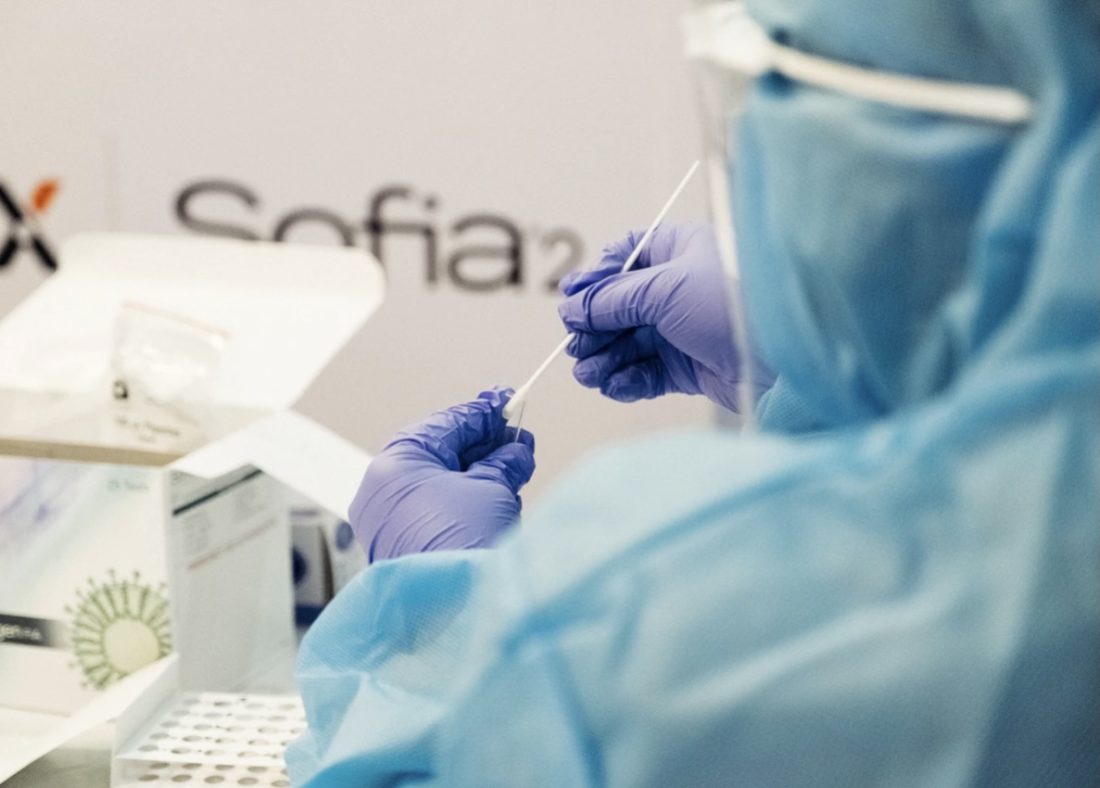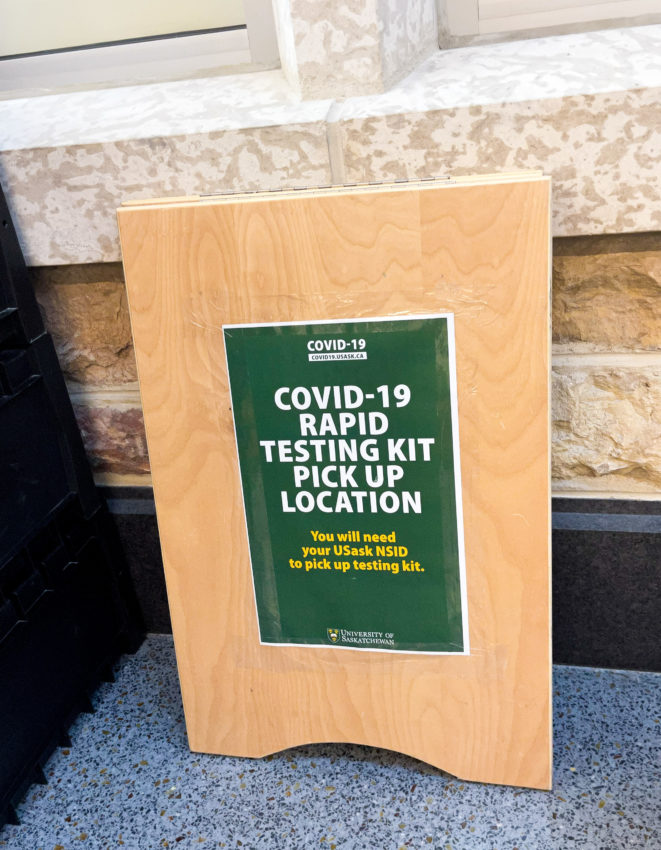
A rise in demand for COVID-19 testing has prompted the Saskatchewan Health Authority to discontinue PCR testing for asymptomatic individuals.
This decision, announced Oct. 1, was made as Saskatchewan deals with its fourth and most severe COVID-19 wave yet. On Oct. 11, when the provincial seven-day rolling average of daily new cases was 483, the SHA stated in a news release that “there are currently more patients in the Intensive Care Units (ICUs) across the province than there have been at any other time during the COVID-19 pandemic.”
As of Oct. 15, the seven-day rolling average of daily new cases is 380.
Epidemiologist and USask professor Dr. Nazeem Muhajarine says that there have been times throughout the pandemic that he has woken up in the night and wondered, “How did we get here?”
According to Muhajarine, the reopening of the U of S campus is “going as well as it could be, particularly in the middle of the worst wave that we are experiencing in this province, particularly at a time when there’s very few other public health measures proposed by the government.”
Alongside the implementation of recent public health measures such as a vaccine passport in particular public locations, the Government of Saskatchewan is also expanding public access to COVID-19 rapid antigen tests.

Rapid antigen tests, the same test required of those on campus whose vaccination status is negative or unknown, are not considered a diagnostic tool by the SHA and cannot replace other health requirements to protect communities. Instead, their primary purpose is speed and cost-effectiveness.
PCR (polymerase chain reaction) tests look for viral genetic material and can be effective at detecting positive cases even when a person is no longer infectious. While PCR tests are highly sensitive, they do require lab equipment and at least 24 hours to produce results. Rapid antigen tests look for viral proteins and are effective at detecting positive cases while a person is infectious to others, making them a useful tool to screen people accessing campus.
The large numbers of people congregating on university campuses for long periods of time, many of them young and social adults, “really creates a high risk [for transmitting] an airborne respiratory-based disease like COVID,” Muhajarine said.
Muhajarine says that widespread access to rapid tests is important and can be used to keep outbreaks small. Additionally, he says that the decreased availability of PCR testing and cost of rapid antigen testing might push more Saskatchewan residents to get vaccinated against COVID-19.
“I think it kind of closes a bit of a loophole for that proof of vaccination policy that was introduced on October 1,” Muhajarine said, referring to the provincial policy requiring proof of vaccination or negative test for access to certain public institutions.
“Rapid tests are like a tool, like a first round of assurance that you can get that you are negative and that you are probably not carrying the virus,” Muhajarine said.
While COVID-19 testing is useful, and although much of Saskatchewan has been vaccinated, Muhajarine thinks that it is time for community members to once again limit their social bubbles and be vigilant about their symptoms like the provincial government mandated in past waves.
“The Delta variant of the virus is almost like a different virus. It is so different compared to any of the previous variants,” Muhajarine said.
The importance of being open and responsive to new science as the pandemic changes like this is one of the big lessons that COVID-19 has taught Muhajarine as an epidemiologist. He has also learned to be patient when answering questions from the public and to be honest when he does not know something.
“We really have a responsibility as humans having been trained in epidemiology […] to share knowledge and to communicate clearly and consistently with people in our province and elsewhere.”
—
Sandra LeBlanc | News Editor
Photo: As Credited
Leave a Reply